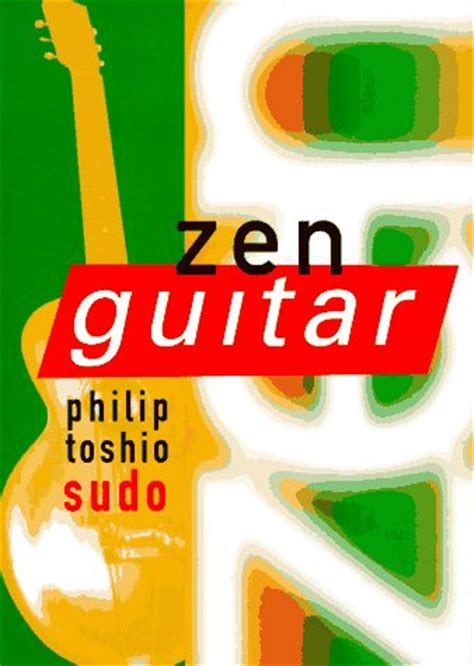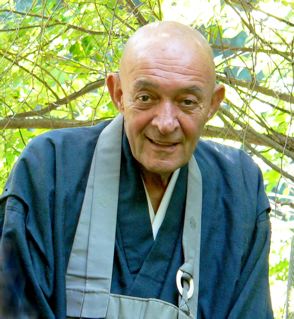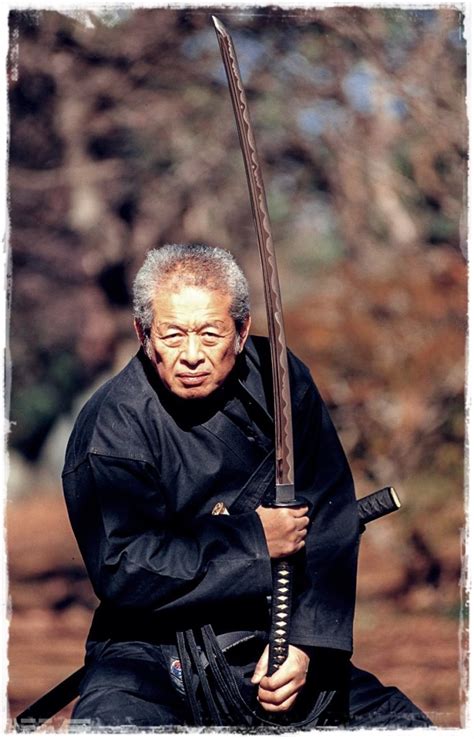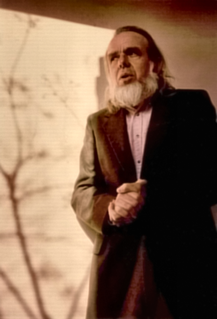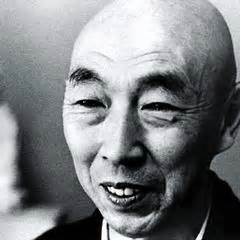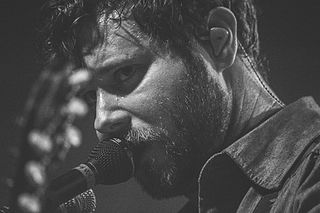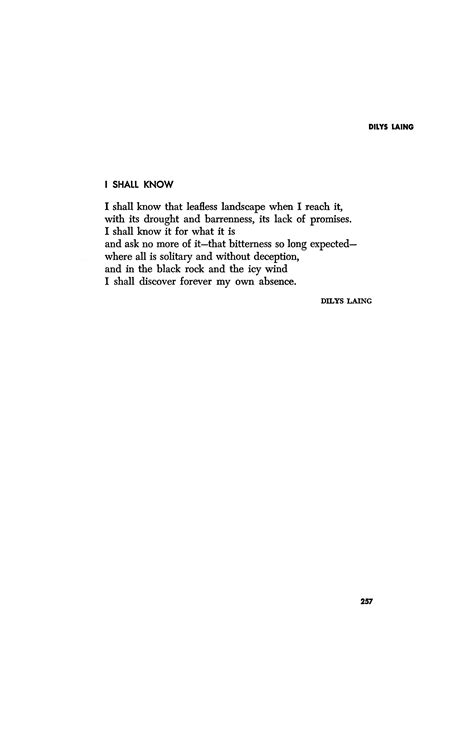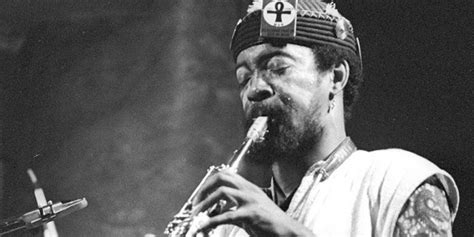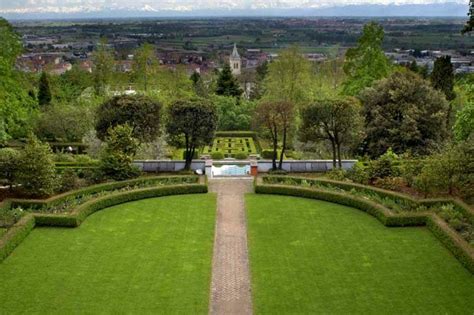Top 637 Zen Quotes & Sayings - Page 10
Explore popular Zen quotes.
Last updated on April 16, 2025.
If your creativity comes out of your silence, out of your Zen, out of your meditations, then it is authentic, original. If it comes only as an occupation because you are feeling lost and there is nothing to do - a long holiday, so you start doing something... That is not coming out of your silences, it is coming out of your crazy mind.
If Zen is approached with the usual mental attitude, it will seem quite incomprehensible. Our average Western intellectuality would consider its paradoxical language simply as a play upon words. Its full significance is revealed only when we approach it in a different manner, making our minds available to the new processes of inner perception which it suggests.
Fighting for one's freedom, struggling towards being free, is like struggling to be a poet or a good Christian or a good Jew or a good Muslim or good Zen Buddhist. You work all day long and achieve some kind of level of success by nightfall, go to sleep and wake up the next morning with the job still to be done. So you start all over again.
The concept of minimalism is to relax. Like a Zen monk in training, it is something that brings equilibrium to the heart. I don't necessarily think it has any problems, but if I were to force myself to name one, I would say that since the minimalist feeling already includes its own universe, I think it might kill the drive that we would otherwise have to commit the physically impossible and attempt to travel into outer space.
Regardless of what you want to call it, guys need some type of spirituality they can grab onto. If it's Christianity, which is a very structured approach, or if it's something that's a little more open-ended... like, Zen's something you can make yourself a part of. You can interpret it for yourself, like Taoism and stuff like that.
With the near-death or clinical near-death phenomenon some people who are brought back from 'death' have reported being alive the entire time they were 'dead.' This phenomenon occurs among people with a wide diversity of religious belief and no religious belief at all - from atheists to Zen Buddhists.
We took a bus to the nearby monastery of one of the last great Tang dynasty Chan masters, Yun-men. Yun-men was known for his pithy 'one word' Zen. When asked 'What is the highest teaching of the Buddha?' he replied: 'An appropriate statement.' On another occasion, he answered: 'Cake.' I admired his directness.
If I was asked to get rid of the Zen aesthetic and just keep one quality necessary to create art, I would say it's trust. When you learn to trust yourself implicitly, you no longer need to prove something through your art. You simply allow it to come out, to be as it is. This is when creating art becomes effortless. It happens just as you grow your hair. It grows.
One view of photography is that it is a zen-like act which captures reality with its pants down - so that the vital click shows the anatomy bare. In this, the photographer is invisible but essential. A computer releasing the shutter would always miss the special moment that the human sensibility can register. For this work, the photographer's instinct is his aid, his personality a hindrance.
I use a Bruce Lee technique: 'The way of no way.' He had the idea that he would learn everything, so that whoever he had to fight, he could improvise anything. The best way of starting a gig is just to not think of anything - to clear your mind, not in an empty Zen state, but more just to go on and see where you go.
The whole essence of Zen consists in walking along the razor's edge of Now - to be so utterly, so completely present that no problem, no suffering, nothing that is not who you are in your essence, can survive in you. In the Now, in the absence of time, all your problems dissolve. Suffering needs time; it cannot survive in the Now.
What interests me is to paint the kind of antisensitivity that impregnates modern civilization. I think art since Cezanne has become extremely romantic and unrealistic, feeding on art. It is Utopian. It has less and less to do with the world. It looks inward - neo-Zen and all that. Pop Art looks out into the world. It doesn't look like a painting of something, it looks like the thing itself.
Someone once inquired of a Far Eastern Zen master, who had a great serenity and peace about him no matter what pressures he faced, "How do you maintain that serenity and peace?" He replied, "I never leave my place of meditation." He meditated early in the morning and for the rest of the day, he carried the peace of those moments with him in his mind and heart.
I live part-time in a cabin in Colorado up in the mountains and part-time on a ranch in central Texas - but do I really know how to go brand a cow, or do I really know how to go rappelling down a cliff? No. I do the recreational, half-assed version of all these manly activities and then try to keep that kind of Zen masculinity, like, "I'm a man of nature."
I tried Zen and Ching, numerology, tarot cards and astrology. I tried to look back into the Bible, and could not find anything. At this time I did not know anything about Islam, and then, what I regarded as a miracle occurred. My brother had visited the mosque in Jerusalem, and was greatly impressed that while on the one hand it throbbed with life.
You don't simply tell someone to get out there and win the tennis match. You say 'move your feet' or 'watch the fuzz on the ball' to really get into the Zen of it. You pull all that together, and then you just might hold up the Wimbledon Plate... It's not about winning first place but bringing every element of effort to whatever you do.
The future is just your hope, expectation. And when this life is not fulfilling you start looking further, beyond death. All these are fictions just for you to survive somehow. But this survival is not how you are supposed to be. Existence has not given you birth just to live in hopes. You can be really ecstatic this moment, and there is no other moment. Meditation is, Zen is living now and here.
There was a famous Zen master whom people would seek out to become enlightened. He was strict and would occupy people with things having nothing to do with seeking enlightenment. You see, that is the only way to achieve enlightenment; by not focusing on achieving it. Then, one day it will just come to you.
It’s interesting to look at your children as line-in Zen masters who can put their finger on places where you’re resistant, or thinking narrowly, in ways noone else can. You can either lose your mind and your authenticity in the process of reacting to all that stuff, or you can use it as the perfect opportunity to grow and nourish your children by attending to what is deepest and best in them and in yourself.
Do not do that again," he said stiffly. "Don't kiss me back then," I retorted. He stared at me for what seemed like forever. "I don't give 'Zen lessons' to hear myself talk. I don't give them because you're another student. I'm doing this to teach you control." "You're doing a great job," I said bitterly.
At the Cruiserweight Classic finale, I said... I don't know if people had looked it up, or if they had heard it before, but it was an old Zen proverb. 'Before enlightenment, chop wood, carry water. After enlightenment, you chop wood, carry water.' It can be interpreted a lot of ways, but for the most part it's about staying in the moment.
All the time. A few months ago I came really close to losing it, I was getting really paranoid. And then I started a new job, things fixed themselves. I can't turn my back on the situation and ignore it. If tomorrow I say: "Okay, I've had enough, we're stopping everything" it won't change anything. Might as well try to accept it and stay zen as I have no control over it.
You know the Zen question, 'The Bodhisattva of Great Mercy' has a thousand hands and a thousand eyes; 'which is the true eye?' I could not understand this for a long time. But the other day, when I looked at the pine trees bending before the cold blasts from the mountain, I suddenly realized the meaning. You see, all the boughs, branches, twigs, and leaves simultaneously bend to the wind with tremendous vigor.
I use a Bruce Lee technique: "The way of no way". He had the idea that he would learn everything, so that whoever he had to fight, he could improvise anything. The best way of starting a gig is just to not think of anything - to clear your mind, not in an empty Zen state, but more just to go on and see where you go.
I think I can pinpoint the moment when my first band recorded, when I was 14 and 15 years old. I always enjoyed writing songs and playing, but there was something about going in and capturing it that felt very Zen and perfect for me. A light switch went on and I just realized that's where my musical capacity was the most suited. I just followed on blind faith that that was like a calling for me.
That is a goal, to step out on stage and to actually be present. Honestly alive and present. Although, it doesn't always happen. We're fallible, we're imperfect. That's what a lot of books are written about; that's what a lot of religions have sought after is that kind of zen mentality of just being totally neutral and open and vulnerable to all of the forces in the universe without being attached to them.
If you exchanged wedding vows, tape them to your bathroom mirror and read them aloud to yourself every morning along with the ritual brushing of teeth. It's not realistic to believe that you will live your promises as a daily practice -- unless you're a saint or a highly evolved Zen Buddhist. Not where marriage is concerned. But you can make a practice of returning to your vows when the going gets rough.
But the transformation of consciousness undertaken in Taoism and Zen is more like the correction of faulty perception or the curing of a disease. It is not an acquisitive process of learning more and more facts or greater and greater skills, but rather an unlearning of wrong habits and opinions. As Lao-tzu said, "The scholar gains every day, but the Taoist loses every day.
I put down my book, The Meaning of Zen, and see the cat smiling into her fur as she delicately combs it with her rough pink tongue. 'Cat, I would lend you this book to study but it appears you have already read it.' She looks up and gives me her full gaze. 'Don't be ridiculous,' she purrs, 'I wrote it.'
In the assemblies of the enlightened ones there have been many cases of mastering the Way bringing forth the heart of plants and trees; this is what awakening the mind for enlightenment is like. The fifth patriarch of Zen was once a pine-planting wayfarer; Rinzai worked on planting cedars and pines on Mount Obaku. . . . Working with plants, trees, fences and walls, if they practice sincerely they will attain enlightenment.
Korea's first Zen Master-poet wrote simple yet elegant poetry of the world he inhabited, both physically and spiritually, and of daily insights-a pause along the way for a deep clear breath, a moon-viewing moment, a seasonal note or a farewell poem to a departing monk. His poems speak softly and clearly, like hearing a temple bell that was struck a thousand years ago.
I think real enlightenment is total sanity, a kind of acceptance of what actually is. It does involve a kind of different way of looking at things. As I've done this Zen practice for years and years, I've acquired what I realize is an almost upside down view of life compared to what most people think, which is just what I used to think it was too. It's not really an insane view, at least I hope it's not.
The famous Zen parable about the master for whom, before his studies, mountains were only mountains, but during his studies mountains were no longer mountains, and afterward mountains were again mountains could be interpreted as an alleory about [the perpetual paradox that when one is closest to a destination one is also the farthest).
Why can't we simply borrow what is useful to us from Buddhism, Hinduism, Taoism, especially Zen, as we borrow from Christianity, science, American Indian traditions and world literature in general, including philosophy, and let the rest go hang? Borrow what we need but rely principally upon our own senses, common sense and daily living experience.
I don't think my competition is with the heroes. I don't think I'm competing with anyone. I don't mean to sound Zen, but genuinely, when I stopped competing with anything is when I started enjoying my work, and that brought out the best in me. I'm living in a universe of my own, and I'm enjoying that. I love to appreciate other people's work.
As far as vocal preparation goes, it's really an interesting thing for such a fragile instrument and using it properly is like walking a tightrope. I have learned not to do extensive warm-ups. It's really more of a cerebral mind-body connection Zen hippy thing, just knowing your body and figuring out if I do that then I will be able to speak tomorrow.
Buddha is said to have given a "silent sermon" once during which he held up a flower and gazed at it. After a while, one of those present, a monk called Mahakasyapa, began to smile. He is said to have been the only one who had understood the sermon. According to legend, that smile (that is to say, realization) was handed down by twenty-eight successive masters and much later became the origin of Zen.
Rigging is like Zen meditation. You must bend over the boat until your back is breaking, until your brain is filled with numbers and fractions of numbers, until you can accurately measure an oarlock's pitch without bothering to use the pitch meter. Only then will you see the way of eternal rigging happiness.
The Zen way of calligraphy is to write in the most straightforward, simple way as if you were a beginner, not trying to make something skillful or beautiful, but simply writing with full attention as if you were discovering what you were writing for the first time; then your full nature will be in your writing.
In the potential of absurdity, hiding in the disparate combination of the various different subjects which in themselves are nothing but daily items equally in the exclusive representation of a normal item taken out of their usual context, is by far the most radical - in its effect comparable to a Japanese Zen koan - paradox to be witnessed, which modern art has produced, one of the most forceful impulses that generated from it.
It took me a long time to reach the decision to retire, actually, from the Art Ensemble. But it seemed more important to me to share the vitality of Aikido and the vitality of Zen training with people, even though it would be a smaller number of people, it seemed to give them something that could last and improve their lives.
Sanity and enlightenment...I've been reading a new book Dogen's Genjo Koan: Three Commentaries, and it contains a commentary on Genjo Koan by Shunryu Suzuki, the author who wrote Zen Mind, Beginners Mind. He doesn't mention sanity at all but I think that one possible definition of enlightenment would be a kind of profound sanity, where being insane is no longer an option.
Essentially Satori is a sudden experience, and it is often described as a "turning over" of the mind, just as a pair of scales will suddenly turn over when a sufficient amount of material has been poured into one pan to overbalance the weight in the other. Hence it is an experience which generally occurs after a long and concentrated effort to discover the meaning of Zen.
I began researching and writing what I intended as a book-length essay entitled Fascination and Liberation, exploring the question of whether there is a conflict between creativity and the Eastern form of enlightenment. I don't know if I'll ever finish that essay, because I had an experience, after I'd written two or three chapters, in which it seemed to me that my psychic antibodies decisively rejected Buddhism. Interestingly, the rejection felt as if it happened in Zen terms.
I can pinpoint the moment when my first band recorded, when I was 14 and 15 years old. I always enjoyed writing songs and playing, but there was something about going in and capturing it that felt very Zen and perfect for me. A light switch went on and I just realized that's where my musical capacity was the most suited. I just followed on blind faith that that was like a calling for me.
A handful of men working within the Zen sect of Buddhism created gardens in fifteenth-century Japan which were, and still are, far more than merely an aesthetic expression. And what is left of the earlier Mogul gardens in India suggests that their makers were acquainted with what lay behind the flowering of the Sufi movement in High Asia and so sought to add further dimensions to their garden scenes.









